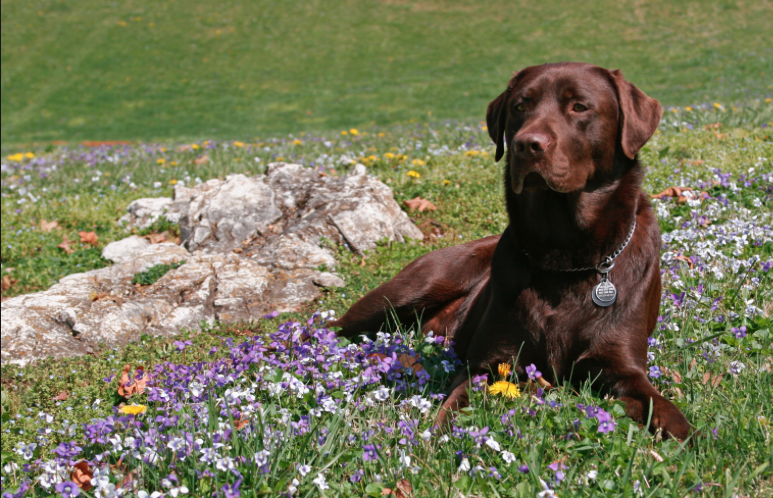
Now that spring has officially sprung, it’s time we begin to prepare our homes, our bodies, and our goals for the new season. Often times we forget that our pets too need some extra care for the change in seasons. Before you get carried away with the season’s chores, take a minute to understand the potential hazards that may be lying around.
Easter decorations and treats
We all know chocolate is toxic to dogs and cats, but this time of year is when they can accidentally ingest it. Chocolate and other Easter treats usually lay around hidden, making it a perfect opportunity for unsupervised puppies or kitties to get into. Decorations such as lilies can be fatal to cats if ingested. Also, kittens love to play with and chew the colorful plastic grass, which can obstruct the digestive tract, leading to vomiting and dehydration.
Spring cleaning
Spring cleaning is one of the major chores that comes with the season, but this is also a potential hazard for younger pets. Cleaning products have harmful chemicals for animals, even the all natural ones. We are often distracted when cleaning our home, making it hard to supervise our pets. Next time you’re on a cleaning spree, make sure all cleaning supplies are out of reach of your pets.
Pet allergies
Just like humans, pets can get allergies in the spring as well. Foods, dust, plants, and pollen all cause allergic reactions such as itching, sniffling, and sneezing. The best treatment for your pets is prevention. Bathing your animal once a week will help relieve itching and help clean them of any allergens. If dust is the problem, make sure to wash your pet’s bedding once a week and to vacuum twice a week. If you suspect food to be a problem, speak with your vet about possible dietary changes.
Grow your garden with care
Springtime also means you’ll be doing a lot more yard work. Fertilizers, insecticides, and herbicides are helpful for growing your gardens, but can be harmful to your pets, if ingested. Always put your gardening products in a safe, out-of-reach place that you know your animals can’t get into. Certain plants can also be harmful, like rhododendron and azaleas, which have proven to be fatal if eaten. For a complete list of toxic and non-toxic plants, check out the ASPCA’s website.
Bugs
Along with flowers, spring brings an onslaught of insects out. Make sure you are keeping up with your pet’s heartworm medications and their tick and flea medication. Ask your vet about prevention plan that is best for your pet.







